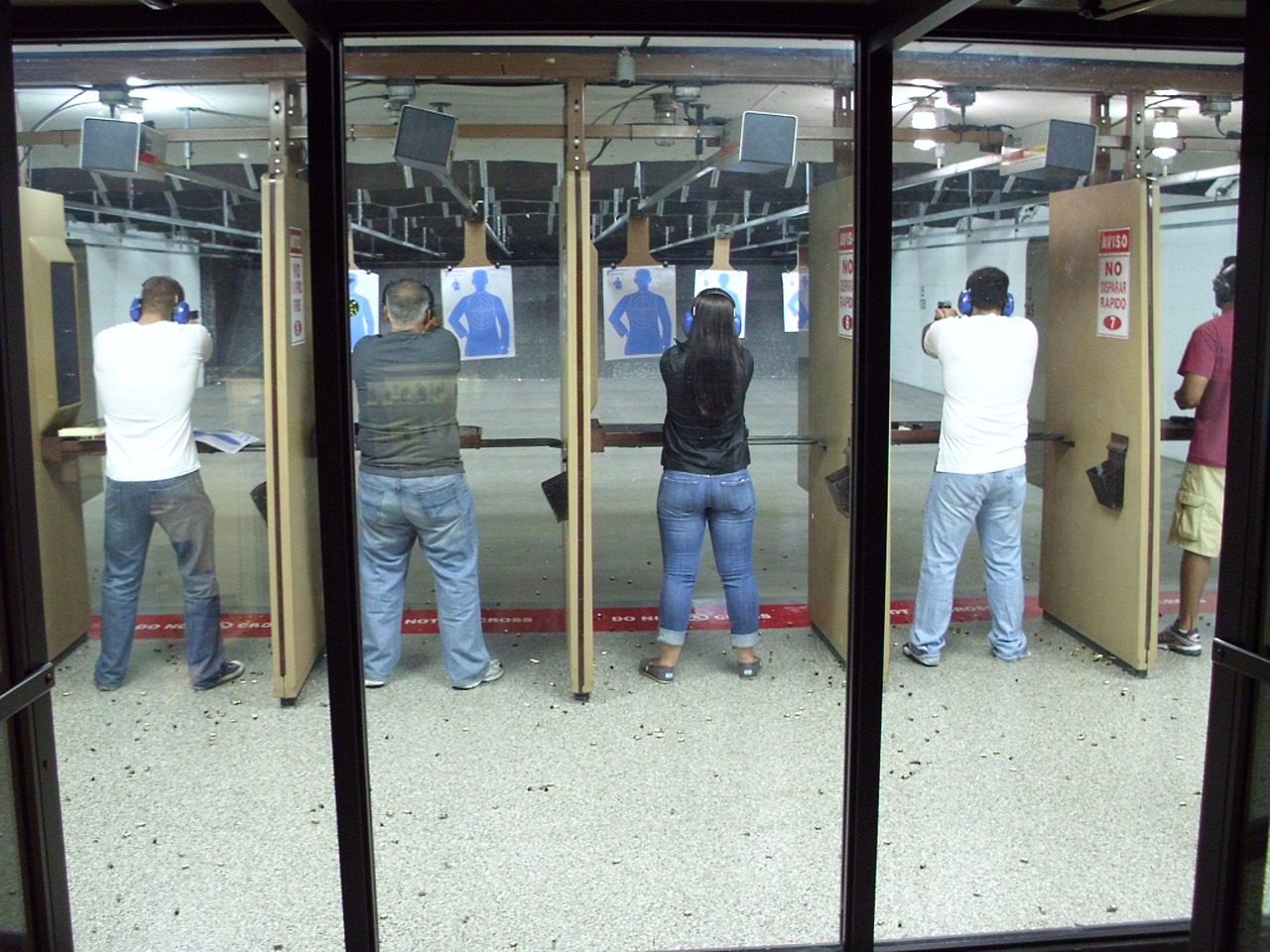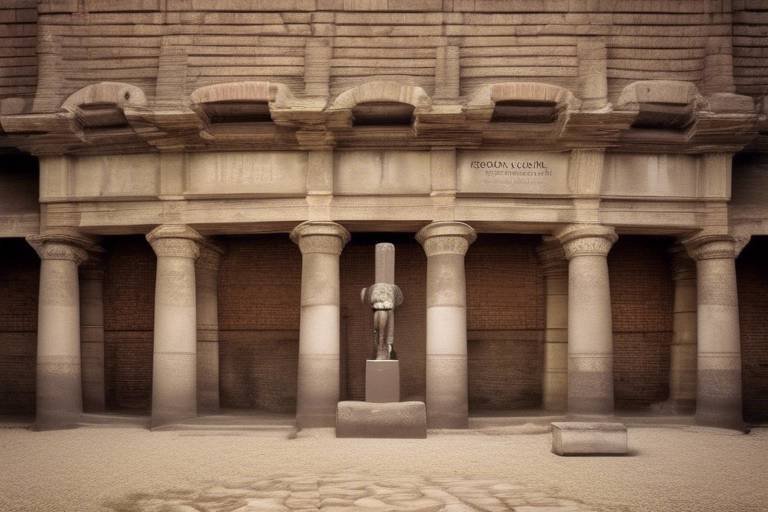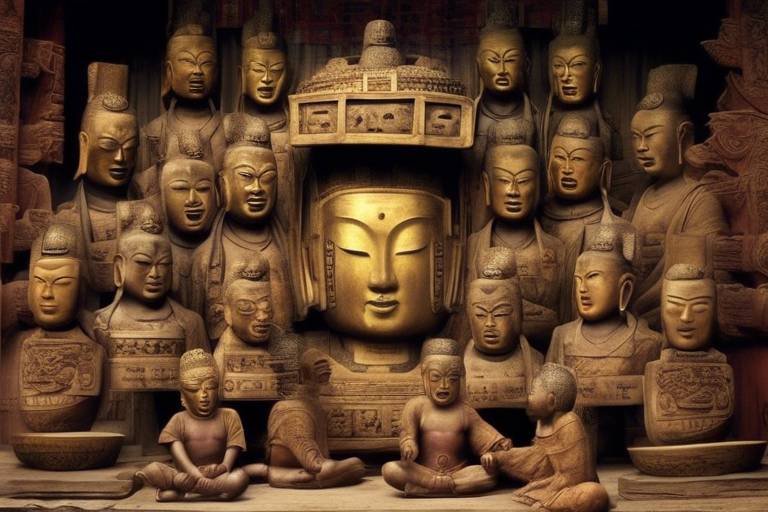The Evolution of Spiritual Practices Over Time
Spiritual practices have undergone a remarkable evolution throughout history, reflecting the changing beliefs and values of societies over time. From ancient rituals rooted in mysticism to modern approaches emphasizing mindfulness and holistic healing, the journey of spiritual practices is a testament to the enduring quest for meaning and connection. As civilizations have risen and fallen, so too have the ways in which individuals seek spiritual fulfillment and transcendence.
In ancient times, spiritual practices were deeply intertwined with the fabric of daily life, guiding individuals in their interactions with the divine and the natural world. Civilizations such as Egypt, Mesopotamia, and the Indus Valley cultivated elaborate rituals and ceremonies to honor their gods and ancestors, seeking harmony and balance in the cosmic order. These ancient practices laid the foundation for the religious traditions that would shape the course of human history.
During the medieval period, organized religions played a dominant role in shaping spiritual practices, offering structured frameworks for worship and moral guidance. Christianity, Islam, and Buddhism emerged as major world religions, each with its own set of rituals, prayers, and ethical teachings. Monastic orders and religious institutions provided a sense of community and spiritual discipline, guiding believers on the path to salvation and enlightenment.
The Renaissance and Enlightenment periods ushered in a new era of intellectual and spiritual exploration, challenging traditional beliefs and dogmas. Humanism emphasized the potential for individual growth and self-realization, while scientific inquiry questioned the supernatural explanations for natural phenomena. The Enlightenment promoted rationality and critical thinking, paving the way for a more secular understanding of spirituality.
In the modern era, spiritual movements have diversified and expanded, embracing a wide range of practices and beliefs. New age spirituality emphasizes personal growth, holistic healing, and interconnectedness with the universe. Mindfulness practices draw on ancient meditation techniques to cultivate awareness and inner peace, while holistic approaches integrate body, mind, and spirit in the pursuit of well-being.
Technological advancements have also transformed the landscape of spiritual practices, offering new tools and platforms for seekers to explore their inner worlds. Virtual meditation apps provide guided sessions and relaxation techniques, while online religious services enable worshippers to connect with their faith communities remotely. The digitalization of sacred texts and teachings has made spiritual knowledge more accessible and interactive than ever before.
Globalization has facilitated the exchange of spiritual practices across cultures and continents, leading to the emergence of hybrid traditions and syncretic movements. The blending of diverse beliefs and rituals has enriched the spiritual landscape, offering new perspectives and insights into the nature of human spirituality. As boundaries dissolve and connections deepen, individuals have more opportunities to explore different paths to meaning and transcendence.
Despite the trend towards secularization in modern society, spiritual practices continue to evolve and adapt to the changing needs of individuals and communities. The decline of traditional religious institutions has prompted a search for new forms of spiritual expression and community engagement. As the boundaries between the sacred and the secular blur, individuals are exploring innovative ways to cultivate a sense of purpose and connection in their lives.
Looking ahead, the future of spiritual practices holds exciting possibilities for innovation and transformation. Personalized spiritual experiences tailored to individual needs and preferences could become more prevalent, offering seekers a bespoke path to spiritual growth. Virtual reality rituals and immersive technologies may revolutionize the way we engage with sacred spaces and ceremonies, creating new opportunities for connection and reflection. The synthesis of science and spirituality could lead to a deeper understanding of the mysteries of existence, bridging the gap between the material and the metaphysical realms.

Ancient Spiritual Practices
Ancient spiritual practices hold a profound significance in the history of human civilization, shaping early beliefs and rituals that continue to influence modern spirituality. In ancient civilizations like Egypt, Mesopotamia, and the Indus Valley, spiritual practices were deeply intertwined with daily life, serving as a means of connecting with the divine and understanding the mysteries of the universe.
The Egyptians, for example, engaged in elaborate rituals to honor their gods and ensure a prosperous afterlife for the deceased. The construction of monumental pyramids and temples was not just a display of architectural prowess but also a manifestation of their spiritual beliefs in the eternal nature of the soul.
In Mesopotamia, the practice of divination and the worship of deities associated with natural elements like the sun, moon, and stars were prevalent. The Babylonians, in particular, developed complex astrological systems that influenced their religious ceremonies and political decisions.
Similarly, the people of the Indus Valley civilization revered nature and practiced rituals to harmonize with the elements, believing in the interconnectedness of all living beings. Yoga and meditation, which originated in ancient India, were also integral parts of spiritual practices aimed at achieving spiritual enlightenment and inner peace.
Across these ancient cultures, spiritual practices served not only as a means of seeking divine favor but also as a way to maintain social order, uphold cultural traditions, and navigate the complexities of human existence. The rituals and ceremonies performed by priests and shamans were seen as essential for ensuring the well-being of the community and fostering a sense of collective identity.

Medieval Religious Practices
During the medieval period, religious practices played a central role in shaping the lives of individuals and communities. Organized religions such as Christianity, Islam, and Buddhism established structured frameworks for spiritual expression and devotion. Churches, mosques, and temples served as sacred spaces where believers congregated to worship and seek guidance from religious authorities.
The medieval era witnessed the proliferation of religious orders and monastic communities dedicated to prayer, contemplation, and service. Monks and nuns followed strict routines of prayer, work, and study, embodying the values of humility, obedience, and poverty. These religious communities played a vital role in preserving knowledge, maintaining social order, and providing spiritual guidance to the faithful.
Religious rituals and ceremonies held significant importance in medieval society, marking important life events such as births, marriages, and deaths. The sacraments of the church, including baptism, communion, and confession, were central to the spiritual life of believers, offering them a sense of connection to the divine and a path to salvation.
The clergy, as intermediaries between the earthly and divine realms, wielded considerable influence and power within medieval society. Priests, bishops, and religious scholars served as moral authorities, educators, and advisors to both rulers and common folk. The religious hierarchy provided a sense of order and stability in a world marked by uncertainty and upheaval.
Art and architecture also played a crucial role in medieval religious practices, with cathedrals, mosques, and temples serving as expressions of faith and devotion. Elaborate stained glass windows, intricate mosaics, and towering spires conveyed the grandeur and glory of God, inspiring awe and reverence in worshippers.
Despite the diversity of religious practices in the medieval period, common themes of piety, devotion, and community permeated the spiritual landscape. The rituals and traditions established during this time continue to influence contemporary religious practices and shape our understanding of spirituality and faith.

Renaissance and Enlightenment Influences
Exploring the changes and adaptations of spiritual practices throughout history, from ancient rituals to modern traditions, and their impact on individuals and societies.
The Renaissance and Enlightenment periods were pivotal in shaping the evolution of spiritual practices, ushering in a new era of intellectual curiosity and philosophical exploration. During the Renaissance, a rebirth of classical learning and artistry sparked a renewed interest in human potential and individual expression. This period saw the rise of humanism, emphasizing the importance of reason, science, and the pursuit of knowledge in understanding the divine.
Similarly, the Enlightenment era challenged traditional religious dogmas and authority, advocating for rationalism, empiricism, and the freedom of thought. Thinkers like Descartes, Locke, and Voltaire questioned established beliefs and promoted critical inquiry into the nature of existence and the role of religion in society.
These intellectual movements had a profound impact on spiritual practices, encouraging individuals to seek personal enlightenment through reason and introspection. The emphasis on individual autonomy and the power of human reason laid the foundation for a more personal and introspective approach to spirituality, shifting the focus from blind faith to intellectual exploration.
Moreover, the Enlightenment promoted the idea of religious tolerance and pluralism, recognizing the diversity of beliefs and practices within society. This openness to different spiritual traditions and perspectives fostered a climate of dialogue and exchange, enriching the spiritual landscape with a variety of ideas and practices.
In essence, the Renaissance and Enlightenment influences on spiritual practices can be likened to a spark igniting a flame of intellectual curiosity and spiritual introspection, illuminating new paths of understanding and self-discovery.

Modern Spiritual Movements
In the realm of modern spiritual movements, a myriad of diverse practices and beliefs have emerged, catering to the evolving needs of individuals seeking deeper connections with themselves and the world around them. One prominent trend is the rise of new age spirituality, characterized by a holistic approach to well-being that integrates elements of Eastern philosophies, alternative healing modalities, and self-exploration techniques. This movement emphasizes the interconnectedness of mind, body, and spirit, encouraging individuals to cultivate mindfulness, self-awareness, and compassion in their daily lives.
Alongside new age spirituality, mindfulness practices have gained widespread popularity in recent years, offering practical tools for managing stress, enhancing focus, and fostering emotional resilience. Rooted in ancient contemplative traditions such as Buddhism, mindfulness involves paying attention to the present moment with openness and non-judgment, allowing individuals to cultivate a sense of inner peace and clarity amidst the chaos of modern life.
Furthermore, holistic healing approaches have gained recognition for their emphasis on treating the individual as a whole being, addressing physical, emotional, and spiritual aspects of health. Practices such as energy healing, crystal therapy, and sound healing seek to restore balance and harmony to the body's energy systems, promoting overall well-being and vitality.
As modern spiritual movements continue to evolve, they are increasingly being integrated into mainstream culture, influencing various sectors such as healthcare, education, and business. Concepts like mindfulness meditation and yoga are now commonly offered in corporate wellness programs, schools, and healthcare settings, highlighting the growing acceptance and adoption of these practices in diverse contexts.
Overall, modern spiritual movements reflect a shift towards a more inclusive and experiential approach to spirituality, emphasizing personal growth, self-discovery, and interconnectedness with the world. By embracing a diverse range of practices and beliefs, individuals are exploring new avenues for spiritual expression and finding deeper meaning in their lives.

Technological Advancements in Spirituality
Exploring the changes and adaptations of spiritual practices throughout history, from ancient rituals to modern traditions, and their impact on individuals and societies.
The fusion of technology with spirituality has revolutionized the way individuals engage with their inner selves and the divine. In today's fast-paced world, where smartphones and virtual reality have become ubiquitous, technological advancements have paved the way for innovative spiritual practices.
One notable advancement is the development of virtual meditation apps, offering users a convenient way to access guided meditation sessions anytime, anywhere. These apps provide a digital sanctuary for individuals seeking moments of peace and reflection amidst their hectic schedules.
Moreover, online religious services have gained popularity, allowing worshippers to participate in sacred rituals and ceremonies virtually. Through live streaming and interactive platforms, individuals can connect with their faith communities and spiritual leaders from the comfort of their homes.
The digitalization of sacred texts and teachings has also transformed the way people engage with religious scriptures. Accessible online databases and e-books enable individuals to explore ancient wisdom and sacred knowledge with just a few clicks, transcending geographical boundaries and cultural barriers.
As technology continues to evolve, the integration of artificial intelligence and augmented reality into spiritual practices is on the horizon. Imagine immersive virtual reality rituals that transport participants to sacred temples or ancient landscapes, creating transformative spiritual experiences unlike anything seen before.
Overall, technological advancements in spirituality have democratized access to spiritual resources and redefined the way individuals connect with their inner selves and higher powers in the digital age.

Globalization and Cultural Exchange
Exploring the changes and adaptations of spiritual practices throughout history, from ancient rituals to modern traditions, and their impact on individuals and societies.
Globalization has played a significant role in the exchange of spiritual practices across different cultures and regions. As borders become more porous and communication technologies advance, spiritual traditions that were once isolated are now blending and influencing each other in unprecedented ways.
One of the key outcomes of globalization on spiritual practices is the fusion of diverse traditions, leading to the creation of hybrid spiritual movements. For example, practices rooted in Eastern philosophies, such as yoga and meditation, have gained popularity in Western societies, becoming integrated into mainstream wellness and self-care routines.
Moreover, cultural exchange facilitated by globalization has allowed for a deeper understanding and appreciation of various spiritual beliefs and practices. People are increasingly open to exploring and adopting practices from different traditions, enriching their own spiritual journeys and broadening their perspectives on the interconnectedness of humanity.
Through globalization, individuals have the opportunity to engage with a wide range of spiritual teachings and practices from around the world, fostering a sense of unity and shared wisdom that transcends geographical boundaries. This interconnectedness not only enriches personal spiritual experiences but also contributes to the promotion of tolerance, understanding, and harmony among diverse communities.

Secularization and the Decline of Traditional Practices
Secularization refers to the process by which religious beliefs and practices lose their influence and significance in society, leading to a decline in traditional spiritual practices. In modern times, there has been a noticeable shift towards secularism, with many individuals moving away from organized religion and traditional rituals.
This trend can be attributed to various factors, including advancements in science and technology, which have provided alternative explanations for natural phenomena that were once attributed to divine intervention. Additionally, the emphasis on individualism and personal autonomy in contemporary society has led to a more critical and questioning attitude towards religious authority and dogma.
As a result of secularization, traditional religious practices, such as attending religious services, following strict religious codes, and participating in religious ceremonies, have experienced a decline in participation and relevance. This shift has raised questions about the role of religion in shaping moral values, social norms, and community cohesion.
Furthermore, the rise of secular humanism and the promotion of secular ethics have offered alternative frameworks for moral decision-making and social organization, challenging the monopoly of religious institutions in guiding ethical behavior and social justice initiatives.
Despite the decline of traditional practices, spirituality remains a fundamental aspect of human experience, with many individuals seeking meaning, purpose, and connection through alternative avenues such as nature, art, philosophy, and personal reflection. This evolution highlights the adaptability and resilience of spiritual practices in response to changing societal dynamics and individual needs.

The Future of Spiritual Practices
Exploring the changes and adaptations of spiritual practices throughout history, from ancient rituals to modern traditions, and their impact on individuals and societies.
As we gaze into the crystal ball of spirituality, what wonders and transformations await us on the horizon? The future of spiritual practices seems to be a tapestry woven with threads of innovation and tradition, blending the ancient with the cutting-edge. One potential trend that may shape the future is the rise of personalized spiritual experiences. Imagine a world where individuals can tailor their spiritual practices to suit their unique needs and beliefs, creating a bespoke path to enlightenment.
Virtual reality rituals could also revolutionize the way we engage with spirituality. Picture stepping into a digital realm where sacred ceremonies and meditative practices come to life in immersive and interactive ways. This fusion of technology and tradition has the potential to transport practitioners to new dimensions of spiritual exploration.
Furthermore, the synthesis of science and spirituality may lead to groundbreaking developments in the future of spiritual practices. As our understanding of the universe deepens, we may discover new connections between the physical and metaphysical realms, bridging the gap between empirical evidence and faith-based beliefs.
Ultimately, the future of spiritual practices holds endless possibilities, inviting us to embark on a journey of discovery and evolution. Whether through virtual realities, personalized experiences, or scientific revelations, the path ahead is illuminated with the promise of growth and transformation.
Frequently Asked Questions
- What are ancient spiritual practices?
Ancient spiritual practices refer to the rituals and beliefs followed by early civilizations such as the Egyptians, Mesopotamians, and the people of the Indus Valley. These practices often involved ceremonies, sacrifices, and worship of deities to seek guidance and protection.
- How have modern spiritual movements evolved?
Modern spiritual movements have evolved to include new age practices, mindfulness techniques, and holistic healing methods. These movements focus on personal growth, self-awareness, and interconnectedness with the universe, offering alternative approaches to traditional religious practices.
- What role does technology play in spiritual practices?
Technology has revolutionized spiritual practices by providing tools such as virtual meditation apps, online religious services, and access to sacred texts through digital platforms. These innovations have made spiritual teachings more accessible and convenient for individuals seeking guidance and inspiration.
- How has globalization impacted spiritual practices?
Globalization has facilitated the exchange of spiritual ideas and practices across cultures, leading to the blending of traditions and the emergence of hybrid spiritual movements. This interconnectedness has enriched spiritual diversity and fostered a greater understanding of different belief systems.
- What does the future hold for spiritual practices?
The future of spiritual practices may involve personalized experiences, virtual reality rituals, and a harmonious integration of science and spirituality. As society evolves, individuals are likely to seek innovative ways to connect with their inner selves and the transcendent aspects of existence.



















